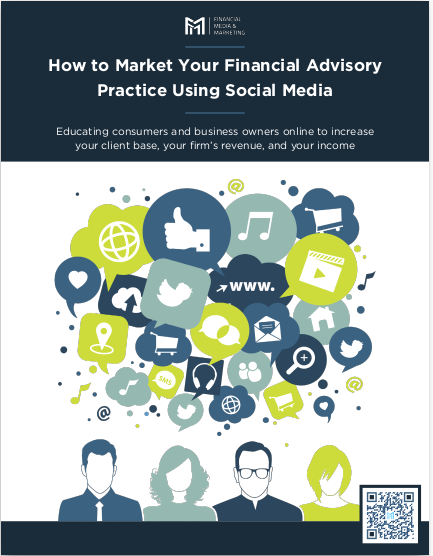Key Takeaways:
-
Your first impression as a financial advisor can determine whether a potential client trusts you enough to move forward. In 2025, with more competition and digital interactions, making a strong impact quickly is more important than ever.
-
Small details like your online presence, initial communication, and even body language can significantly influence whether a lead converts into a long-term client.
The Power of First Impressions in 2025
In the fast-paced world of financial advising, you don’t get a second chance to make a first impression. With more people relying on digital research, social media, and virtual consultations, you need to be intentional about how you present yourself from the very first interaction. Your ability to inspire trust, credibility, and expertise within seconds can mean the difference between securing a client or losing them to another advisor.
Why First Impressions Are More Critical Now Than Ever
The Digital Age Has Raised Expectations
A decade ago, most financial advisors relied on in-person meetings, referrals, and word-of-mouth. Now, potential clients often research you online before they even reach out. If your digital presence is lacking—whether through an outdated website, inactive social media, or poor online reviews—you might lose a lead before you even know they were considering you.
-
Your website should be up to date and optimized for mobile. If it’s slow or difficult to navigate, potential clients may leave before they even read about your services.
-
Your LinkedIn profile should reflect your expertise and accomplishments. Many clients use LinkedIn to verify a financial advisor’s credibility.
-
Your social media presence should reinforce your knowledge. Posting about financial trends, market insights, and retirement planning can boost your authority.
-
Your Google reviews should reflect a track record of satisfied clients. If you don’t actively collect reviews, you’re missing out on a key trust-building element.
Competition Is Fierce
With more advisors entering the market, standing out is harder than ever. Clients have access to more choices, and they won’t hesitate to compare options before committing. If you don’t create an immediate and lasting impression, someone else will.
-
Being approachable is just as important as being knowledgeable. Clients want to work with someone who understands them and makes them feel comfortable discussing their finances.
-
Responding quickly to inquiries is crucial. A slow response time can make leads turn to another advisor who is more accessible.
-
Personal branding is no longer optional. Clients want to know what sets you apart before they choose to work with you.
Trust Is Harder to Earn
Financial planning involves a high level of trust. Prospects need to believe in your ability to handle their finances responsibly. If you don’t establish credibility right away, they’ll move on to someone who does.
-
Transparency about fees and services can help build confidence. Clients don’t want surprises later on.
-
Providing value upfront—like free educational content—can establish trust before they even speak to you.
-
Clear communication about your investment philosophy and planning approach reassures clients they’re making the right choice.
How to Make a Strong First Impression
Optimize Your Online Presence
Most clients will check you out online before they even think about booking a consultation. Here’s how you can make sure they like what they see:
-
Ensure your website is professional and user-friendly. It should be easy to navigate, clearly explain your services, and highlight your expertise.
-
Maintain an active presence on social media. Posting insightful content and engaging with your audience can build credibility.
-
Monitor and manage your online reviews. Addressing negative feedback professionally can show that you value client satisfaction.
-
Use high-quality professional photos. Your profile picture should convey confidence, trustworthiness, and approachability.
-
Have a professional email address. An unprofessional email can make you look less credible.
Perfect Your Elevator Pitch
When you finally speak to a lead—whether in person, over the phone, or in a virtual meeting—you need to make those first few minutes count. Keep your introduction concise but impactful:
-
State who you are and what you specialize in.
-
Highlight what makes you different from other advisors.
-
Keep it clear, jargon-free, and client-focused.
-
Tailor your introduction based on the client’s concerns.
Master the Art of Active Listening
First impressions aren’t just about what you say—it’s also about how you listen. Clients don’t just want to hear about your expertise; they want to feel heard themselves. Use active listening techniques like:
-
Paraphrasing their concerns to show understanding.
-
Nodding and making eye contact (in video calls, looking at the camera helps).
-
Asking thoughtful follow-up questions.
-
Avoiding interruptions—let them fully explain their financial concerns before responding.
Use Confident Body Language
Even in virtual meetings, body language plays a crucial role in first impressions. Sit upright, maintain a steady tone of voice, and use hand gestures naturally. Confidence without arrogance is key.
-
A firm handshake (or a warm virtual greeting) sets the tone for professionalism.
-
Smiling can put clients at ease.
-
A strong posture shows confidence and authority.
The Role of Personal Branding in First Impressions
Define Your Unique Value Proposition
You need a clear and compelling personal brand that makes clients think of you as their go-to advisor. Ask yourself:
-
What do you want to be known for?
-
How do you differentiate yourself from competitors?
-
What’s the key message you want potential clients to remember about you?
Consistency Across Platforms
Your messaging should be uniform across your website, LinkedIn, social media, and any marketing materials. Inconsistencies can create doubt about your professionalism.
Build Authority Through Content
Publishing informative content—whether through blogs, videos, or webinars—can establish you as a credible expert. When a lead sees your name attached to valuable financial insights, they’re more likely to trust your expertise.
The First Client Meeting: Sealing the Deal
Preparation Is Key
Nothing ruins a first impression like being unprepared. Before meeting a potential client:
-
Review any information they’ve provided.
-
Research their industry if they’re a business owner.
-
Prepare personalized questions that show you understand their needs.
-
Have clear visuals or reports ready to explain financial strategies.
Set Clear Expectations
From the start, explain your process, what clients can expect, and how you add value. This eliminates uncertainty and builds confidence in your services.
End with a Strong Call to Action
Always leave the conversation with a clear next step—whether it’s scheduling a follow-up, sending additional information, or setting up a full consultation.
Standing Out and Winning More Clients in 2025
First impressions have always mattered, but in 2025, they are more important than ever. In a world where clients can research, compare, and switch financial advisors with a few clicks, you can’t afford to leave your first interactions to chance. By refining your online presence, perfecting your communication, and delivering value from the start, you can ensure that potential clients choose you over the competition.










